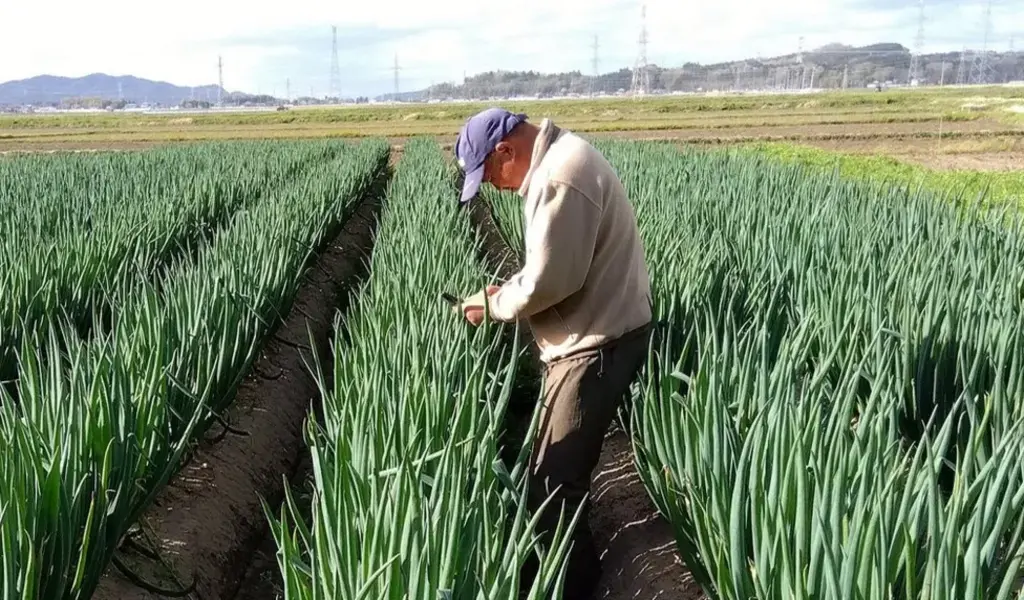(CTN News) – Japan faces a labor deficit due to its declining population. Many people hope that artificial intelligence (AI) can fill the gap.
In a society famed for its perfectionist tendencies, damaged or deformed vegetables and fruits are difficult to sell.
And if you are a specialist maker of Japanese dumplings, such as the brand Osaka Ohsho, selling a packet of gyoza with some damage is strictly prohibited.
However, as demand increased during the epidemic, its parent company, Eat&Holdings, did not have enough people to check every dumpling, let alone meet demand.
So it looked to technology for an answer. In January 2023, it constructed a cutting-edge plant outfitted with AI-powered cameras trained to detect any incorrect gyoza on the production lines.
Today, this plant produces two dumplings every second. That’s twice as fast as the other Osaka Ohsho production facilities.
“By implementing AI, we have reduced manpower on the manufacturing line by almost 30%,” adds spokeswoman Keiko Handa.
The company recently debuted an AI-powered culinary robot named I-Robo at one of its Tokyo locations. Because training chefs take time, the company believes the technology will help address the labor shortfall.
Japan’s labor shortage is only expected to worsen.
The current population of 124.35 million has been declining for 13 years. From 2022 to 2040, Japan’s labor force is projected to fall by 12%, resulting in an estimated 11 million job losses.
Meanwhile, Asia’s second-largest economy already has the world’s oldest population, with 29% of residents aged 65 and more.
The country also boasts one of the world’s lowest birth rates, with 758,631 babies born last year, the fewest since records began in the nineteenth century.
The government’s initiatives to increase birth rates have had limited success. Prime Minister Fumio Kishida stated that his country is “on the verge of being unable to function.”
Since AI has taken the globe by storm, many have wondered if our employment may be hijacked. But for some in Japan, AI cannot come soon enough.
Farming is one of Japan’s fastest-aging sectors, with the average farmer aged 68.4 years. AI is being used to identify various diseases, pests, and weeds to diagnose and prevent them in their early stages.
Nihon Nohyaku, a manufacturer of agricultural chemicals, has created a smartphone app called Nichino AI. When a farmer takes a picture of a suffering crop, the app diagnoses the problem and recommends the appropriate herbicide.
“The accuracy rate is about 70 to 80%, so it is not as good as real experts, but better than ordinary farmers,” explains Nihon Nohyaku’s Kentarou Taniguchi.
“The longer we work on this app, the more we realise how excellent the human experts are,” he said. “But the number of experts is falling, so that is where AI tools can come in handy.”
Farmer Kensuke Takahashi, who has been using the app for three years, believes AI is one of the instruments that will assist in modernizing the industry. “The number of farmers is falling sharply like a rollercoaster,” he points out, “but Japan’s total amount of produce is increasing.”
Mr Takahashi agrees that some elderly farmers may be skeptical of new technologies like AI, but he feels they contribute to increased efficiency. “Once you try out a drone to spray pesticide, you cannot go back to manual spraying,” he said with a giggle.
What about a long-standing shortage of language teachers?
Despite the government’s continuous efforts to raise the number of English speakers, Japan has consistently ranked low in English proficiency, owing to a shortage of teachers who can successfully speak the language.
To address this deficiency, Ecumenopolis has created an AI-powered online application that allows users to converse in English with an avatar for 15 minutes per session. It has so far been implemented in 50 schools across the country.
At Narita Kokusai High School, on the outskirts of Tokyo, pupils were asked to use it at home for three months of practice at the end of last year.
“AI decides what kind of English conversations each student can have and varies its questions,” says teacher Shoko Takiguchi to the BBC. “It is difficult to have one-on-one conversations with every student so that was an advantage.”
At the end of each interaction, students receive feedback in six areas: pronunciation, grammar, fluency, and vocabulary.
“With AI, it is easy to find out what my weakness was, so it was efficient,” explains one of the pupils, Ko Hanyuan. He responded no when asked whether he would prefer AI over his online tuition. Why? It lacks human touch.
Ms. Takiguchi concurs, saying, “It is useful to improve your speaking skills, but I found conversations unnatural.” She adds that the AI cannot detect the user’s emotion, physical state, or tone of voice.
So, it will not replace human teachers? “AI cannot and should not replace English lessons in schools or teachers,” emphasizes the school’s principal, Katsutoshi Fukumizu.
Governments in Japan are also experimenting with artificial intelligence.
With labor constraints, Yokosuka City in Kanagawa Prefecture has begun utilizing AI chatbot ChatGPT to assist with administrative activities such as meeting transcription and summation.
“We deal with enormous amounts of documents, and it takes a very long time and effort to create those documents,” says Kohei Ota, the city’s spokeswoman.
“We have calculated after our trial that we save 22,700 hours of work annually,” he says, thanks to ChatGPT.
AI is also being used to train employees at the national government’s Digital Agency, founded in 2021 to address inefficiencies in public administration.
“There are so many things that we want to do, but our manpower hasn’t been able to keep up,” says Masanori Kusunoki of the agency. He also says the government attempts to “explore how we can use AI and spread the information” to the private sector.
However, Mr Kusunoki does not believe that the rise of AI would result in fewer jobs being needed.
Japan, a country where change takes time, is more open to the power of AI than others.
That is because it has spent more than a decade researching every possible answer to the twin whammy of an aging and diminishing population, including robots, women, the elderly, and foreign labor.
While AI can improve workforce productivity, it is far from ready to replace human workers.








